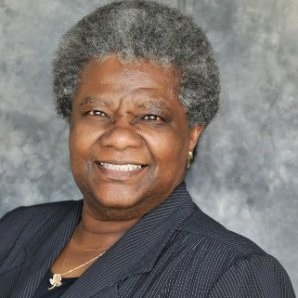Billie’s Blog: Let’s Talk About Mental Health
Mind and Spirit Counseling Center hosted the 27th Annual Women Helping Women luncheon on Friday, May 2, at Prairie Meadows. Nearly 600 attendees were treated to a delicious lunch while honoring community leader Mary Gottschalk. Women Helping Women began in 1999 with a mission to support women and girls who lack financial resources to access mental health services. The first event was held in the Kelley Conference Room, Methodist Conference Center on Thursday, March 18, 1999. One hundred women attended. Since then, the initiative has raised over $2.5M.
This year’s theme of Women Helping Women was “The Impact of Social Media on Mental Health.” While social media appears to affect youth (ages 6-17) more often, adults are not immune. An estimated 4.9B people globally use social media, with an average adult use of about 145 minutes per day. Youth users report upward of 5 hours per day. Social media’s focus is physical appearance, with filters that allow users to exaggerate their image. These filters may contribute to feelings of low self-esteem, low sense of self-worth, depression and anxiety, as users compare their screen self to their reality and the screen appearances of others.
There are ways to foster healthier use of social media. You can try setting an alarm to limit your screen time, which can be quite useful. Let others know you are limiting your screen time and how long you will be on the channel. You may also want to make appointments with yourself and include the time of day and for how long. Setting limits and drawing boundaries can seem daunting at first. Over time, you may recognize improvements in yourself and others. Another technique is to unfriend people whose “comments” cause you to see yourself negatively. You can refriend them later, if you wish. Activities which bring you enjoyment and allow for interaction with others may be helpful.
Social media is particularly enticing to youth—ages 6-17. To help children, you can work with them to find healthy alternatives and apply the techniques above to their screen time.
Mental illness is much more than social media impact. In 1949, the National Association for Mental Health, now known as Mental Health America, dubbed May as Mental Health Awareness Month. MHA expanded its focus on mind and body wellness in 2019 to include the benefits of animal companionship, spirituality, humor, work/life balance, and social connections.
MentalHealth.gov states that “Mental health includes our emotional, psychological, and social well-being.” It affects how we think, feel, and do. How we handle stress, relate to others, and make choices are all affected by our mental health. Mental health is important at every stage of life, from childhood and adolescence through adulthood. MSCC is at the forefront of providing exceptional mental health services, education, and resources to everyone seeking healing, growth, and hope. Everyone associated with the Center is acutely aware of the effects of mental illness on everyday life.
According to the National Institute of Mental Health (NIMH), mental illnesses include many conditions that vary in severity, ranging from “mild to moderate to severe.” Two broad categories used to describe these conditions are: Any Mental Illness (AMI), which encompasses all recognized mental illnesses, and Serious Mental Illness (SMI), which is a smaller and more severe and specific subset of AMI. SMI includes “major depression, schizophrenia, bipolar disorder, post-traumatic stress (PTSD), and borderline personality disorder” (Department of Veterans Affairs).
NIMH reports that “nearly one in five U. S. adults live with a mental illness (46.6 million in 2017).” The estimation translates to about 600,000 Iowans living with mental illness and 37,000 Iowans living with serious mental illness reports the National Alliance on Mental Illness (NAMI). In Mental Health America’s 2023 The State of Mental Health in America Report, Iowa ranked 25 in terms of “prevalence of mental illness and access to mental health care.”
Mental illness has no quick-fix remedies and no cure. But many people can live productive lives with treatment—counseling and pharmaceutical—support, education, social services, and resources. Stigma, societal and internalized, is a major barrier to treatment. Other barriers include lack of financial resources, lack of information about where to get help, and lack of social supports. Social supports include but are not limited to transportation, childcare, and cultural stigma. Some people fear and mistrust mental health professionals, mood-altering drugs and addiction—even prescribed medications—and fear of losing independence. There are a myriad of other reasons people do not seek professional mental health services.
Mental health awareness means listening to others and talking to trusted people. The organizations mentioned in this post are excellent resources for learning more about mental illness. And, of course, you may contact Mind and Spirit Counseling Center, Urbandale, Iowa, 515-274-4006, where they will be happy to answer your questions and help you explore the best mental health options for you.
Billie Wade is a gregarious introvert whose primary interests are writing, lifelong learning, personal development, and how we all are affected by life’s vagaries.
Issues facing Black people, women, the LGBTQ community, and aging adults are of particular concern to her. She enjoys open-hearted dialogue with diverse people. The opinions expressed here are her own.


